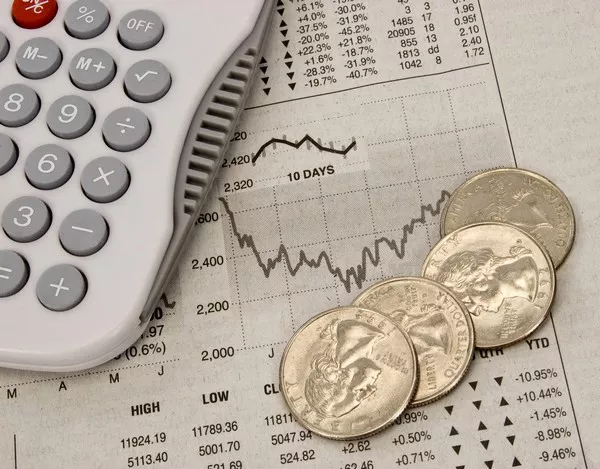Futures trading is a popular form of investment where traders can buy or sell futures contracts on various assets, including commodities, currencies, and stocks. Futures are essentially agreements to buy or sell an asset at a predetermined price at a specific point in the future. In this article, we will provide an example of futures trading and discuss its benefits and risks.
Section 1: What is Futures Trading?
Definition of futures trading Overview of futures contracts Types of assets traded in futures markets Futures trading refers to buying or selling futures contracts, which are agreements to buy or sell an underlying asset at a predetermined price at a specific time in the future. These contracts are traded on futures exchanges, which provide a centralized marketplace for buyers and sellers to trade futures contracts. Various types of assets can be traded in futures markets, including commodities such as gold and oil, currencies, and stock index futures.
Section 2: Example of Futures Trading
Example of buying a futures contract Example of selling a futures contract Impact of market conditions on futures trading To illustrate how futures trading works, let’s consider the following example:
Suppose a trader believes that the price of gold will increase in the coming months. To profit from this, the trader can buy a futures contract for gold at the current price of $1,800 per ounce. The contract specifies that the trader will purchase 100 ounces of gold at this price in three months’ time. If the price of gold rises to $2,000 per ounce by the time the contract expires, the trader can sell the gold at the higher price, earning a profit of $20,000 (100 ounces x $200).
On the other hand, if the trader believes that the price of gold will decrease, they can sell a futures contract for gold at the current price of $1,800 per ounce. This contract also specifies that the trader will deliver 100 ounces of gold in three months’ time. If the price of gold drops to $1,600 per ounce by the time the contract expires, the trader can buy the gold at the lower price, earning a profit of $20,000 (100 ounces x $200).
The example above shows how futures trading allows traders to profit from both rising and falling markets. However, it is important to note that market conditions can have a significant impact on futures trading. Traders need to be aware of factors such as supply and demand, geopolitical events, and economic indicators that can affect the price of the underlying asset.
Section 3: Benefits of Futures Trading
Leverage Hedging against price volatility Diversification Lower transaction costs One of the main benefits of futures trading is leverage, which allows traders to control a large amount of assets with a small amount of capital. This can lead to higher potential returns but also carries higher risks. Another benefit of futures trading is its use as a hedging tool to protect against price volatility. For example, farmers can use futures contracts to lock in prices for crops, while investors can use futures contracts to hedge against stock market downturns.
Futures trading also provides diversification opportunities, allowing traders to gain exposure to various types of assets. Additionally, futures trading typically has lower transaction costs compared to other forms of trading, such as stocks or options.
Section 4: Risks of Futures Trading
Market risk Leverage risk Margin calls Counterparty risk Futures trading involves several risks that traders need to be aware of. Market risk is one of the primary risks, as the price of the underlying asset can fluctuate significantly, resulting in losses. Leverage risk is another concern, as traders can lose more than their initial investment if the market moves against them. Margin calls are also a risk, as traders must maintain a certain level of margin in their accounts to cover potential losses. Failure to do so can result in a margin call, which requires the trader to deposit additional funds to maintain the position.
Counterparty risk is another concern in futures trading, as traders are exposed to the financial stability of the exchange and the counterparty they are trading with. In the event of default, traders may lose their investments or face delays in settling their positions.
Section 5: Strategies for Futures Trading
Basic strategies (long/short positions, spreads) Advanced strategies (options writing, arbitrage) Risk management strategies There are various strategies that traders can use when trading futures contracts. Basic strategies include taking long or short positions on futures contracts, as well as using spreads to manage risk. Advanced strategies involve more complex techniques such as options writing and arbitrage.
Risk management strategies are also important in futures trading, including using stop-loss orders, diversifying portfolios, and managing leverage carefully.
Section 6: Conclusion
Recap of key points discussed in the article Final thoughts on futures trading In conclusion, futures trading provides opportunities for traders to profit from rising and falling markets, but also carries significant risks. Traders must be aware of the benefits and risks of futures trading, as well as develop effective trading strategies and risk management techniques to succeed in this market.
Futures trading offers several benefits, including leverage, hedging against price volatility, diversification, and lower transaction costs. However, traders must also be aware of the potential risks, such as market risk, leverage risk, margin calls, and counterparty risk.
To succeed in futures trading, traders need to develop effective trading strategies that take into account market conditions and risk management techniques. These strategies can include taking long or short positions, using spreads, options writing, arbitrage, and other advanced techniques.
In conclusion, futures trading can be a lucrative form of investment for those who understand its benefits and risks and are willing to invest the time and effort to develop effective trading strategies. As with any form of investment, it is important to do your research, stay informed about market conditions, and manage your risk carefully to maximize your returns and minimize your losses.


